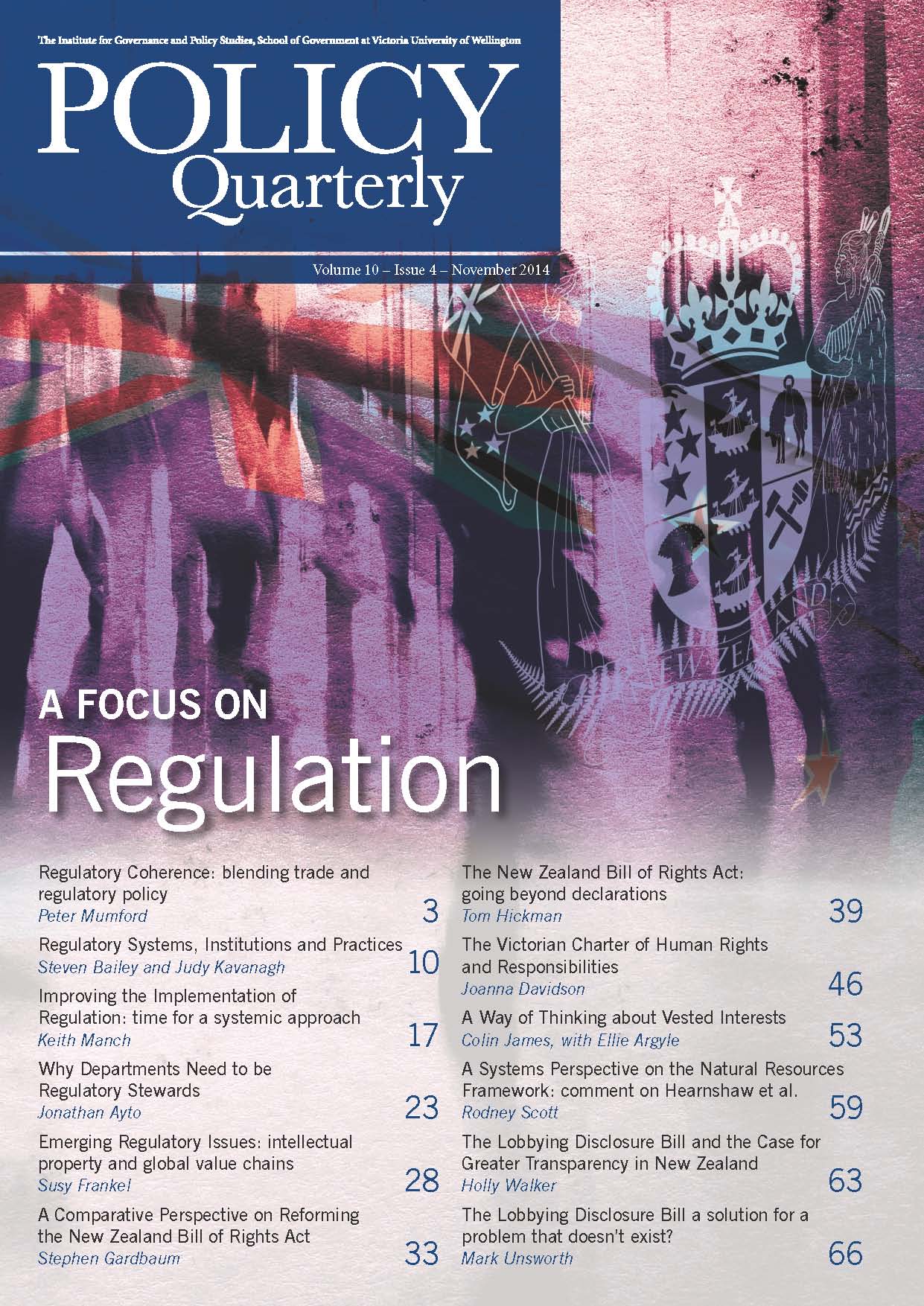The Victorian Charter of Human Rights and Responsibilities
DOI:
https://doi.org/10.26686/pq.v10i4.4507Keywords:
New Zealand Bill of Rights Act (NZBORA), Victorian Charter of Human Rights and Responsibilities Act 2006 (the Victorian Charter), Human Rights Act 1998 (HRA), public functions, powers and duties, principle of separation of powers, knowledge of human rights, culture of rights, administrative and parliamentary proceduresAbstract
The Victorian Charter of Human Rights and Responsibilities Act 2006 (the Victorian Charter) was enacted 16 years after the New Zealand Bill of Rights Act (NZBORA). Like the NZBORA and the United Kingdom’s Human Rights Act 1998 (HRA), the Victorian Charter is an ordinary act of Parliament which seeks to preserve parliamentary sovereignty by limiting the courts’ ability to strike down legislation. The Victorian Charter drew heavily upon the experience of New Zealand and the United Kingdom. The Victorian Charter expressly adopts some aspects of the NZBORA and the HRA (such as the interpretative rule), rejects other aspects (such as the ability to obtain damages for breach), but also includes some provisions that are quite different from either the NZBORA or the HRA.
Downloads
Downloads
Published
Issue
Section
License
Permission: In the interest of promoting debate and wider dissemination, the IGPS encourages use of all or part of the articles appearing in PQ, where there is no element of commercial gain. Appropriate acknowledgement of both author and source should be made in all cases. Please direct requests for permission to reprint articles from this publication to Policy-Quarterly@vuw.ac.nz.



